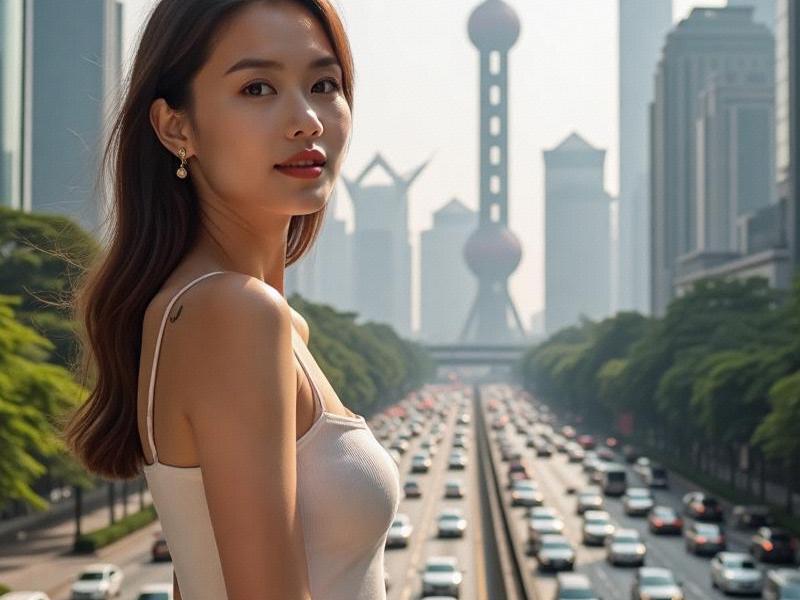This 2,800-word feature explores how educated, cosmopolitan Shanghai women are challenging traditional Chinese beauty norms and gender expectations through career achievements, fashion choices, and lifestyle decisions that blend Eastern and Western influences.

The afternoon sun filters through the floor-to-ceiling windows of a WeWork in Shanghai's Jing'an District, where 29-year-old venture capitalist Vivian Li holds court in a tailored qipao-inspired dress and Yeezy sneakers. Around her, a dozen female startup founders debate funding strategies while sipping matcha lattes. This scene encapsulates the new Shanghai woman - equally comfortable discussing Series B financing as the latest xianxia drama, blending cultural influences with effortless grace.
The Education Revolution
Shanghai's female workforce now boasts the highest percentage of postgraduate degrees in China (42% vs national average of 28%). At Fudan University's gender studies center, Professor Zhang Wei explains: "Our research shows Shanghai girls outperform boys academically from primary school through university - this educational advantage translates directly to career success." The city's financial sector now has 39% female executives, compared to 22% in Beijing.
爱上海419论坛
Beauty Beyond Bai You Mei
The traditional Chinese beauty ideal of "bai you mei" (white, slim, delicate) is being challenged by Shanghai's fitness boom. Personal trainer Rachel Guo notes her female clients now prioritize "strong over skinny," with gym memberships among women aged 20-35 increasing 300% since 2020. Meanwhile, cosmetic dermatologist Dr. Liu reports declining demand for double eyelid surgery: "Young women now want procedures that enhance their natural Shanghainese features rather than Westernize them."
上海龙凤阿拉后花园
Fashion as Cultural Dialogue
On the catwalks of Shanghai Fashion Week, homegrown designers like Susan Fang are reinventing cheongsam with 3D-printed elements. "My designs celebrate the Shanghainese woman's unique position between Chinese tradition and global modernity," Fang explains during a backstage interview. This fusion aesthetic resonates internationally - Shanghai-based fashion influencer LuluInShanghai has 8.7 million followers drawn to her mix of vintage Mao jackets and avant-garde streetwear.
上海娱乐联盟
The Marriage Paradox
Despite professional success, societal pressures persist. Matchmaking agency data reveals 68% of Shanghai parents still list "stable government job" as their top criterion for daughters' partners. Yet the city's average marriage age for women has risen to 31.2 (highest in China). Sociologist Dr. Chen observes: "Shanghai women aren't rejecting marriage - they're redefining it on their terms, often prioritizing cohabitation and prenuptial agreements."
As the sun sets over the Huangpu River, casting golden light on both the colonial-era Bund and futuristic Pudong, Shanghai's women continue navigating their complex position at the vanguard of Chinese femininity. Their choices - in careers, relationships, and self-presentation - offer a fascinating blueprint for modern womanhood in 21st century Asia.